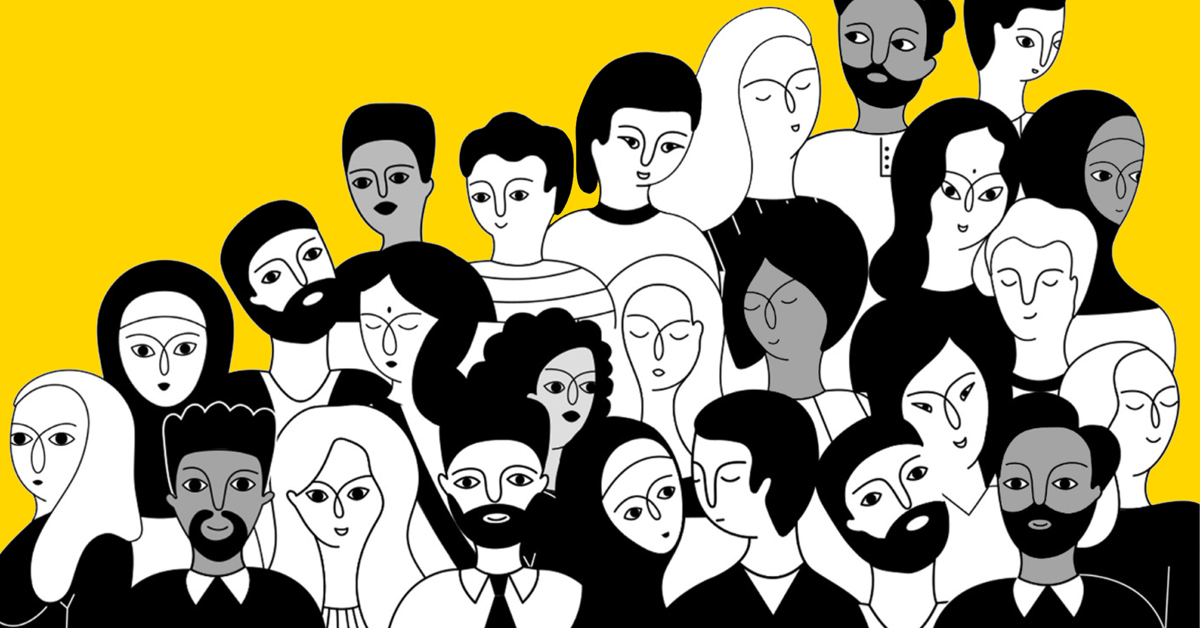
Thursday, October 6, 2022 - Saturday, October 8, 2022
Funding for the symposium provided by The Stanley-University of Iowa Foundation Support Organization
This event is hosted by the UI Division of World Languages, Literatures, and Cultures with support from UI International Programs.
Following the resurgence of protests against racialized police violence since May 2020, citizens, activists, artists, and academic communities across the globe have renewed efforts to reflect on and respond to issues of race and ethnicity and racial and ethnic discrimination. The University of Iowa Division of World Languages, Literatures, and Cultures (DWLLC) has joined these efforts. Racial and ethnic hatred is increasing around the world. As educators, we share the University of Iowa’s initiatives in the area of diversity, equity, and inclusion (DEI) and the goal of supporting students on the path to becoming antiracist global citizens. Antiracism is the “active process of identifying and eliminating racism by changing systems, organizational structures, policies and practices and attitudes, so that power is redistributed and shared equitably” (The National Action Committee on the Status of Women International Perspectives: Women and Global Solidarity). Becoming an antiracist is always a work in progress and depends on who you are. The public discussion of antiracism is informed by research in a diverse array of fields including sociology, English, African-American studies, linguistics, literary and cultural studies, and media studies. Part of understanding race in America means understanding that anti-Blackness, ethnic discrimination, and colonialism are global issues. Acknowledging and addressing structural inequalities in the cultures that DWLLC and its constituent units represent, and how they advantage some and disadvantage others, is an essential part of our curricula and research programs, and innovative learning takes place in many forms. We look forward to a multidisciplinary dialogue and exchange of ideas concerning global ethnic and antiracism studies.
This three-day symposium brought together leaders and scholars from across disciplines and geographic areas and engaged them in an open dialogue about the opportunities that advocating for diversity, equity, and inclusion in the academy provides.
Free and open to the public.
Day One / Thursday, October 6, 2022
Locations for Day One
- University Capitol Centre: International Commons, 1st floor – room 1117 (map)
- Adler Journalism & Mass Communication Building – room E105 (map)
|
Time |
Segment |
Speakers |
Location |
|
2:00 – 2:30 p.m. |
Welcoming Remarks |
Opening Remarks |
University Capitol Centre, International Commons, room 1117 |
|
2:30 – 3:30 p.m. |
Lecture #1 |
Corine Tachtiris: Engaging with Race Through Translation |
University Capitol Centre, International Commons, room 1117 |
|
3:45 – 5:15 p.m. |
Session 1 - Panel |
Exchanges Group: "Exophonic" Translation Panel Discussion with:
Moderated by: Anna Magavern and Khaled Rajeh |
University Capitol Centre, International Commons, room 1117 |
|
7:00 p.m. |
Film #1 & Discussion |
Gypsy Vengerka: Music and Culture of the Russian Roma Introduction by: Glenn Ehrstine Film Discussion with:
The film and discussion will not be live streamed via Zoom. |
Day Two / Friday, October 7, 2022
Locations for Day Two
- University Capitol Centre: International Commons, 1st floor – room 1117 (map)
- Adler Journalism & Mass Communication Building – room E105 (map)
|
Time |
Segment |
Speakers |
Location |
|
9:00 – 9:15 a.m. |
Welcome |
Welcome from planning committee |
University Capitol Centre, International Commons, room 1117 |
|
9:15 – 10:15 a.m. |
Lecture #2 |
Priscilla Layne: Employing Anti-racist Pedagogy in the Foreign Language Classroom Discussion moderated by: Waltraud Maierhofer |
University Capitol Centre, International Commons, room 1117 |
|
10:30 – 11:30 a.m. |
Session 2 – Social Justice and Literary/Cultural Studies |
Jose Fernandez: José Martí, “periodista neoyorquino,” and His Newspaper Chronicles on Native Americans Anny-Dominque Curtius, on behalf of Elke Heckner: Thriving together: how to rebuild coalitions and counteract competition – a look at minority discourses Discussion moderated by: Jill Beckman |
University Capitol Centre, International Commons, room 1117 |
|
11:45 a.m. – 12:45 p.m. |
Session 3 - Francophone Studies |
Panel Discussion: Anti-racisme in the Academy: Francophone Studies as a Nexus for Diversity, Equity, and Inclusion
Moderated by: Downing Thomas |
University Capitol Centre, International Commons, room 1117 |
|
2:00 – 3:00 p.m. |
Lecture #3 |
Aris Clemons: A-political linguistics doesn’t exist, and it shouldn’t: Setting the framework for Liberatory Linguistics Introduction by: Becky González |
University Capitol Centre, International Commons, room 1117 |
|
3:15 – 4:45 p.m. |
Session 4 – Teaching Diversity / Addressing Exclusion : Perspectives from German Studies |
Glenn Ehrstine: Approaching the Others of German Studies from a pre-Holocaust Perspective: Catholics, Protestants, Yiddish, and Leonard Nimoy Maureen O. Gallagher: The Hidden Curriculum of Whiteness in Introductory German Language Textbooks Hannah V. Eldridge: German Poets Playing in the Dark: Lyric Portrayals of Racialized Others Discussion moderated by: Waltraud Maierhofer |
University Capitol Centre, International Commons, room 1117 |
|
7:00 – 8:30 p.m. |
Film #2 & Discussion |
BLAQ.IT: Representing Blackness in Italy Introduction by: Cinzia Blum Film Discussion and Q&A with Fred Kuwornu (via Zoom) The film and discussion will not be live streamed via Zoom. |
Day Three / Saturday, October 8, 2022
Location for Day Three
- University Capitol Centre: International Commons, 1st floor – room 1117 (map)
|
Time |
Segment |
Speakers |
Location |
|
9:00 – 10:00 a.m. |
Session 5 - Asian Languages |
Group Presentation: Empowering Self Identity in East Asian Language Classrooms
Moderated by: Helen Shen |
University Capitol Centre, International Commons, room 1117 |
| 10:15 - 11:15 a.m. | Lecture #4 |
Mercedes Niño-Murcia: Constructing Spaces for Migrants in Classrooms: Racialization, Perceptions, and Realities Introduced by Kristin Muñoz |
University Capitol Centre, International Commons, room 1117 |
|
11:30 a.m. – 12:30 p.m. |
Session 6 |
Incorporating Culture, Diversity, and Inclusion in the Classroom Panel with:
Moderated by: Maria Marroquin Perez |
University Capitol Centre, International Commons, room 1117 |
|
12:30 – 1:00 p.m. |
Closing |
Closing Remarks & Discussion |
University Capitol Centre, International Commons, room 1117 |
Aris Clemons is an assistant professor of Spanish linguistics in the Modern Foreign Languages and Literatures department at the University of Tennessee Knoxville. Having completed her doctoral degree in the Spanish and Portuguese department and the Mexican American and Latina/o Studies department at the University of Texas at Austin, her work spans the fields of linguistics, education, anthropology, and Black and Latinx studies in order to interrogate the intersections of language, race, and identity. Originally from (all over) the Bay Area in California, she has been steeped in the traditions of anti-racist pedagogies and has dedicated herself to developing and sustaining these practices in her own research and teaching. As such, her research agenda is rooted in social change through an examination of the ways that what appears to be common knowledge is often constructed and ideologically maintained by various social institutions. She was the recipient of a Spencer doctoral fellowship, which allowed her to complete research surrounding Dominican language and Identity in digital and educational spaces. And she has recently been awarded an American Council of Learned Societies (ACLS) fellowship to continue her work on teacher evaluations of Dominican Language as Black language practice. Overarchingly, Aris questions the linguistic mechanisms—repetitions, stance taking, tropicalizations, etc.—responsible for the (re)construction and maintenance of racializing and marginalizing ideologies.
Dr. Anny-Dominque Curtius is a professor of francophone studies at the University of Iowa where she also serves as co-director of the working group “Museum Futures” at the Obermann Center for Advanced Studies. Her interdisciplinary research is at the crossroads of cultural theory, cinematic, visual, and performing arts of the Caribbean, the Indian Ocean, and Francophone Sub-Saharan Africa; Comparative postcolonial museum studies; Black Atlantic Ecocriticism. Her work also focuses on the defacement and toppling of the iconography of slavery in the public space. She is the author of two books: Suzanne Césaire. Archéologie littéraire et artistique d’une mémoire empêchée [Suzanne Césaire. Literary and Artistic Archeology of a Hindered Memory (2020) and Symbioses d’une mémoire: Manifestations religieuses et littératures de la Caraïbe (2006) [Symbiosis of a Memory: Caribbean Religions and Literatures] as well as numerous articles and book chapters in the fields of studies aforementioned. She has two books in progress. One explores entangled subtitles and global audiences in Francophone cinemas. The second one examines postcolonial and ecocritical narrativization of trauma and memory in the new museum.
Dr. Roxanna Curto is an associate professor of French and Spanish and Chair of the Department of French and Italian at the University of Iowa. She received her PhD in French from Yale in 2008, and her AB in romance studies from Harvard in 2001. In her research, she explores the representation of cultural elements such as technology and sports in literature from the French- and Spanish-speaking worlds. She is the author of Inter-tech(s): Colonialism and the Question of Technology in Francophone Literature (University of Virginia Press, 2016). She has also published essays exploring connections between Aimé Césaire and Latin American literature, and the role of technology in the work of 20th-Century poets, including Guillaume Apollinaire, Blaise Cendrars, and Denis Roche. Her second book project, Writing Sport: The Stylistics and Politics of Athletic Movement in French and Francophone Literature, considers aspects of physical culture in literature written in French from Europe, Africa, North America, and the Caribbean. She recently co-edited the volume, Pour le sport: Physical Culture in French and Francophone Literature (Liverpool University Press, 2021).
Reid Dempsey is a literary translator from German to English, and formerly editor-in-chief of Exchanges, the University of Iowa's journal of literary translation.
Hannah Eldridge is a professor of German in the Department of German, Nordic, and Slavic+ at the University of Wisconsin – Madison; she is a white, queer, cisgender, settler academic and also a daughter, sister, wife, aunt, and sister-in-law working on unceded Ho-Chunk territory. A scholar of lyric poetry, she is currently working on a book project titled, Lyric Whiteness: The Creation of an Invisible Category in Germany.
Jose Fernandez is an assistant professor in the Latina/o/x studies program at the University of Iowa. Their fields of study are American, Black, and Latinx literatures.
Hadley Galbraith is a PhD candidate in the French & francophone world studies program at the University of Iowa. Her interdisciplinary research focuses on the intersections of memory, trauma, embodied experience, and dance in contemporary literature, film and performance reexamining slavery and its legacies in francophone contexts. Her dissertation takes a transnational perspective, examining works by authors from the Caribbean, the Indian Ocean, Sub-Saharan Africa, and France. She has published articles in the journal Contemporary French & Francophone Studies: SITES. She will defend her dissertation in spring of 2022.
Maureen Gallagher holds a PhD in German studies from the University of Massachusetts Amherst and works as a lecturer in German studies at Australian National University. Her research interests include race and gender in German literature and culture, German colonialism, critical whiteness studies, and anti-racist and decolonial pedagogy.
Katie Gilbert is a PhD student in French & francophone world studies at the University of Iowa. Her research interests focus on questions of community building and representation in the hierarchized language contexts of the Caribbean and Indian Ocean, as it is done through literature, film, and other cultural production. She holds an MFA in literary translation from the University of Iowa, and is passionate about promoting translation in the classroom, as well as teaching the French language and the different cultures and literatures of the francophone world.
Sabine Golz is a professor who teaches German and comparative literature in the Division of World Languages, Literatures, and Cultures at the University of Iowa. She is also active in the University of Iowa's program in literary translation. In addition to her scholarly work, she also has worked with photography and makes documentary films.
Abigail Haber is currently pursuing an MFA in literary translation at the University of Iowa, specializing in French-English literary translation. She works primarily with experimental Mahgreb poetry and fiction. More broadly, her writing and research explores the intersections between language, the body, and performance. She graduated in 2020 from Brown University with honors, majoring in comparative literature and international relations. For her senior thesis, she produced a critical translation of Chloé Delaume’s first novel Le Cri du Sablier (The Cry of the Hourglass), which she presented at Brown University’s inaugural Translation Across Disciplines Conference. She has also worked with various translation presses and literary nonprofits, including Open Letter Press, Trafika Europe, and, as of late, Stenen Press.
Mirgul Isherwood translates from her native Kazakh and has had her translations published in Tupelo Quarterly, Electric Literature, Exchanges, The Massachusetts Review, Gulf Coast, and elsewhere under the name Mirgul Kali. She received the ALTA Emerging Translator Mentorship in 2018 and a PEN/Heim Translation Fund grant in 2022. She is in her second year of the MFA program in literary translation at the University of Iowa.
Ara Javaheri was born in Iran and grew up in a bilingual Kurdish-Farsi community. She received her bachelor’s degree in English literature from Allameh Tabataba’i University of Tehran in 2011 and has worked as a full-time translator ever since. She has translated and published over 17 novels from English to Farsi, as well as working on numerous projects in several fields of art and science. She has also been a member of Iranian Hall of Literary Scholars and Iranian House of Book & Literature since 2016.
Ramora Koob is a second year Ph.D. student in Hispanic linguistics at the University of Iowa. She obtained her Bachelor's and Master's degree in Spanish from the California State University, Sacramento. Her main research interests are the production and perception of sounds, and language transfer in second and third language learners.
Fred Kudjo Kuwornu is an Italian-Ghanaian filmmaker, activist, and educator, born and raised in Italy and based in New York. He holds a Master of Arts in political science at the University of Bologna, Italy, with a focus on sociology and mass communication studies. He is best known as the director of critically acclaimed documentaries such as Blaxploitalian, Inside Buffalo, and 18 Ius Soli. His documentaries deal with political and social themes, such as racism, interracial relations, diversity, Afro-Italians, and Black Diaspora identity in Italy and the African diaspora in the world. In July 2021, he launched the platform BlackItalia.info and “Teaching Black Italy” a one-week refresher online course for the professor of Italian and Black Studies which explores the contemporary presence of the African diaspora in Italy. Kuwornu is a D&I consultant for Netflix Italy and other broadcasters in Italy. He has co-taught: “Black Italian Cinema and Digital Performance” at Colorado College and the University of Minnesota, and “Documentary Filmmaking” at Middlebury College Italian Summer School. His production has been awarded by New York Foundation for the Arts, Open Society, Premio Mutti. He is currently producing "We Were There," a documentary about the black presence in Europe during the Renaissance.
Priscilla Layne is an associate professor of German and adjunct assistant professor of African and Afro-American studies at the University of North Carolina - Chapel Hill. Priscilla’s first book, White Rebels in Black: German Appropriation of Black Popular Culture, examines how, following WWII, German artists often associated white, rebellious male characters with black popular culture, because black culture functioned as a metaphor for rebellion. Priscilla is currently working on her second book, Out of This World: Afro-German Afrofuturism, which focuses on Afro-German authors’ use of Afrofuturist concepts in literature and theater. In addition to this project, some of the broader themes she is interested in are German national identity, conceptions of race and self/other in Germany, cross-racial empathy, postcolonialism, and rebellion. After serving as vice president from 2020-2021, Dr. Layne is now president of the American Association of Teachers of German through 2023.
Irene Lottini holds a PhD in comparative studies from the University of Siena (Italy). At the University of Iowa, she teaches Italian language, literature, and culture, and serves as course supervisor for the elementary Italian I and II sequence. Her main research interests focus on Italian silent cinema, contemporary cinema, and the relationship between film and the other arts. Her most recent publications include essays on 1910s cinema and contemporary film. She has presented papers on silent, modern, and contemporary cinema at numerous national and international conferences.
Yuan Lu is a lecturer of Chinese and serves as the interim coordinator of the Chinese program at the University of Iowa, supervising curriculum and instruction. His main research interests involve second language acquisition theories and research methods, language assessment and testing, contextual effects on second language development, and grammar and discourse learning and teaching in Chinese as a second language.
Dr. Mercedes Niño-Murcia is a professor emerita in the Department of Spanish & Portuguese at the University of Iowa, and is a sociocultural linguist. Her work focuses on the consequences of linguistic contact and nationalist language ideologies upon bilingual communities in Latin America and the United States. She has done research on inequalities of language policy and how sociolinguistic inequalities affect indigenous and/or immigrant groups in both rural and urban settings. She has also written about vernacular literacies. Her current research contributes to forensic linguistics (the study of interactions between language and legal institutions) and focuses especially on contexts that shape class and race hierarchies around Latino immigrants in the USA.
Yumiko Nishii is an associate professor of Japanese linguistics at the University of Iowa. Her research areas are verb semantics and second language acquisition. She is particularly interested in investigating cross-linguistic variations and their significance in second language acquisition. She serves as linguistics and pedagogy editor of Japanese Language and Literature.
María G. Marroquín Pérez is a Ph.D. student in the Department of Spanish and Portuguese at the University of Iowa, where she also obtained her MA in Spanish. Her research interests include Mexican and Latina/o/x literature, migration, citizenship, belonging, and placemaking.
Mariana Ruiz Nascimento is currently a Ph.D. student in literacy, culture, and language education at the University of Iowa. She holds a master's degree in applied linguistics from the Federal University of Uberlândia (UFU) in Brazil. She has experience teaching English and Portuguese, and she worked as a foreign language teaching assistant (FLTA - Fulbright) at the University of Iowa. She enjoys taking part in projects and research groups that involve teaching foreign languages, and her research interests include language policies, teacher training, and writing and development of teaching materials.
Corine Tachtiris is an assistant professor of translation studies at the University of Massachusetts Amherst and a practicing literary translator. Her book, Translation and Race, is forthcoming with Routledge. Her translations focus primarily on the work of women authors from the Francophone Caribbean, Africa, and Canada as well as the Czech Republic. She is prose translation editor at The Massachusetts Review and an at-large board member of the American Literary Translators Association, where she also serves as a member of the Equity Advocates.
Vala Thorodds is a poet, publisher, and editor, as well as a translator from Icelandic to English. Her work has appeared in publications including The Guardian, Granta, and The Penguin Book of the Prose Poem, and she recently received a PEN/Heim Translation Fund grant for her translation of the novel Swanfolk by Kristín Ómarsdóttir, published in 2022. Her translation of Ómarsdóttir’s selected poems, Waitress in Fall, was a White Review and Sunday Times poetry book of the year. She is currently pursuing an MFA in literary translation from the University of Iowa, where she was awarded an Iowa Arts Fellowship.
Azul Trejo Zetina is a second year MA student of Spanish Linguistics at the University of Iowa (UI). She previously obtained an MA in applied communication with an emphasis in documentary studies as well as a BS in creative media and film with a minor in Italian from Northern Arizona University (NAU). She has experience as a teaching assistant for introductory level Spanish and Italian, and introduction to screenwriting at NAU. She also has experience as a sole instructor of elementary and intermediate Spanish courses at UI as well as oral communication and Latin-American culture courses at NAU’s study abroad program in Costa Rica. She currently works at the Center for Language and Culture Learning at the University of Iowa. Her research areas of interest are in the fields of multilingual education, second language acquisition, language identity, and sociolinguistics.
Sang-Seok Yoon is an assistant professor of Korean linguistics at the University of Iowa. He has two primary research areas. One is to find effective ways of teaching and learning Korean as a second/foreign language, especially focusing on interlanguage pragmatics. The other is to examine how politeness is expressed in the Korean language.
Parking – The Capitol Street parking ramp is located at 220 S. Capitol Street, with entrances on both Capitol Street and Clinton Street. Parking is $1/hour and the first hour is free.
Bus Service – The University Capitol Centre is located adjacent to the Downtown Interchange bus stop. A number of University of Iowa (CAMBUS) and city buses frequent this location.
University Capitol Centre location – The University Capitol Centre (UCC) sits on the corner of Burlington and Clinton Streets and is connected to the Capitol Street parking ramp. Linked is a map of campus.
International Commons - room 1117 – The International Commons is located in the northwest corner of the UCC. The address is:
201 S. Clinton Street
1111 University Capitol Centre (UCC)
Iowa City, Iowa 52240
From the parking ramp, you will walk to the far end (the north end) of the building. A convenient ‘marker’ on your way to the IP Office is the coffee shop called T Spoons near the escalator. Once you pass T Spoons, look to your left to see the glass doors labeled INTERNATIONAL PROGRAMS. Go through the two sets of doors and the International Commons, room 1117 is on your left. Linked is a map of the UCC building.
Visiting from out of town? Below are some highlights for places to eat, things to do, and hotel options close by. If you are a presenter, refer to your event contact for details on what meals are provided and what hotel you are staying in.
Places to Eat
For places to eat located inside the University Capitol Centre, visit the Capitol Mall's directory.
For places to eat in downtown Iowa City, visit the Iowa City Downtown District food and drink guide.
For more options, visit Think Iowa City's restaurant guide.
Hotels
The Iowa House Hotel is conveniently located on the University of Iowa Campus inside the Iowa Memorial Union, overlooking the Iowa River.
For hotels within walking distance of the University Capitol Centre (UCC), visit the Iowa City Downtown District hotel guide.
For more options, visit Think Iowa City's hotel guide.
Shopping
Shops located within walking distance of campus can be found on the Iowa City Downtown District shopping guide.
Located 5 miles from campus is the Coral Ridge Mall.
Things to Do
Looking for events and activities happening in the area? Visit the Think Iowa City visitor guide.
Co-Organizers
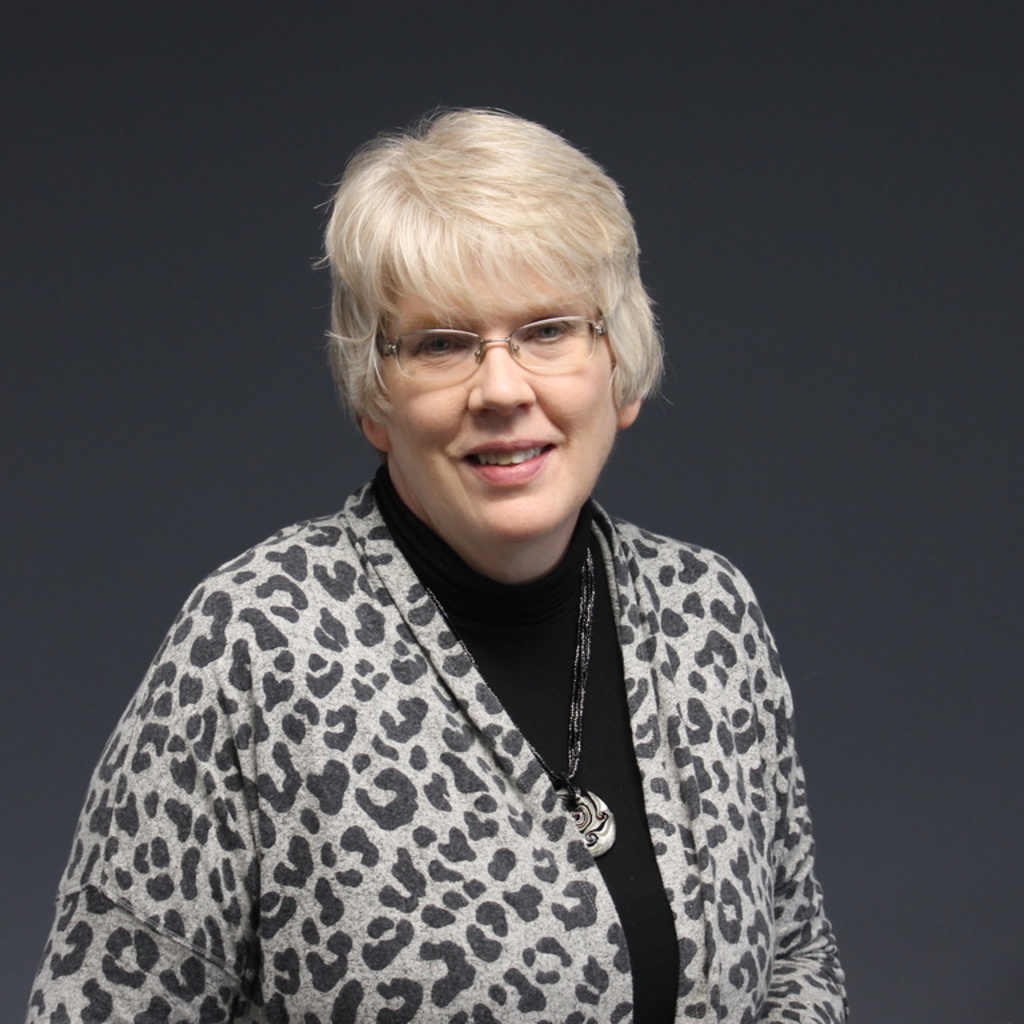
Jill Beckman
An associate professor and honors advisor in linguistics at the University of Iowa.
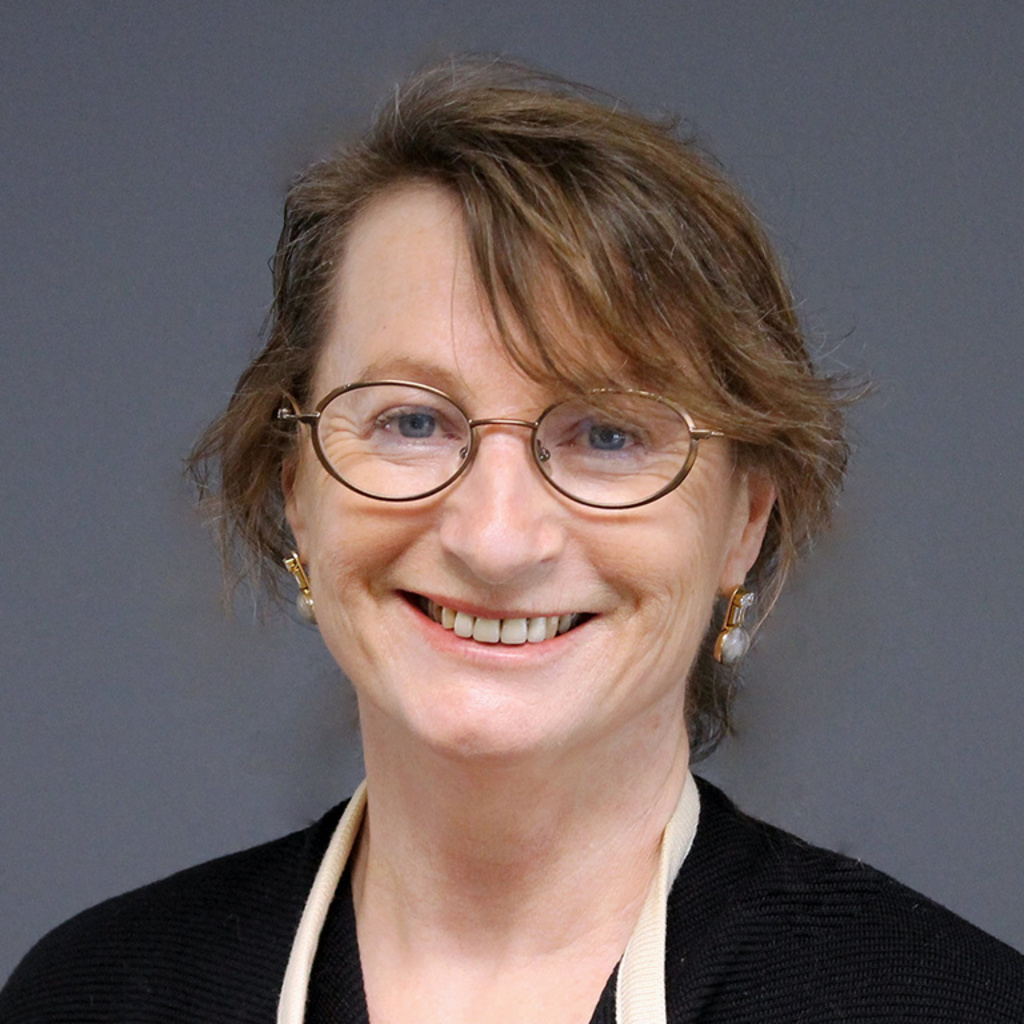
Waltraud Maierhofer
Waltraud is a professor of German literature and culture and also of global health studies at the University of Iowa. She love to get students excited about another culture, learn what we have in common and what differentiates us, and explore human nature through narratives of human striving and accomplishments in its diverse forms. Her research and teaching interests include German literature and culture from the eighteenth century to the present. She is especially interested in representations of health and human rights issues (contraception, abortion, disabilities), in intersections of historiography and fiction, ego-documents and biography, but also book illustrations and text–image relations, and has edited several historical documents and translations.
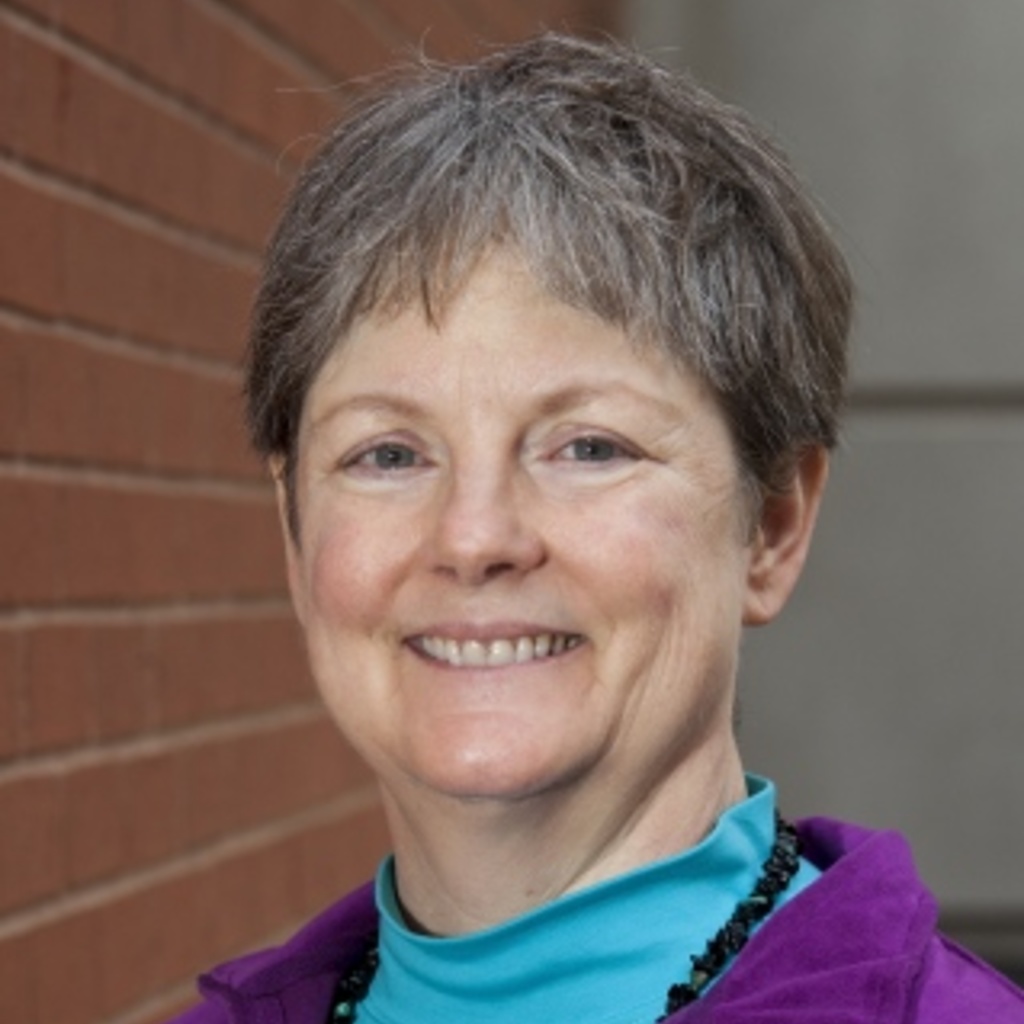
Kristine Munoz
Kristine Muñoz (Fitch until 2010) is a professor in the Departments of Spanish and Portuguese. Her ethnographic work began in Colombia with a Fulbright Dissertation grant in 1987 and continues through the present day with a second Fulbright Research and Teaching grant scheduled for Spring 2022. The interpretive social science focus of her early work produced four books, 40 articles and chapters, and over 60 conference presentations between 1983-2016, centered on questions of language, culture, and interpersonal relationships. Since shifting her appointment from Communication Studies to Spanish, she has pursued issues of how to bring scholarship about Colombian culture into public digital spaces in ways that are accessible and compelling to educated lay publics and Spanish language educators. An ongoing project related to that effort is a website, Medellín after Escobar, intended to re-envision Colombia’s second-largest city through images, essays, oral histories and collaborative projects that show the city’s identity of innovation and industry, in contrast to memories of its violent history of narcotrafficking. This project was constructed through the University of Iowa’s Digital Humanities Studio: https://medellin.lib.uiowa.edu.
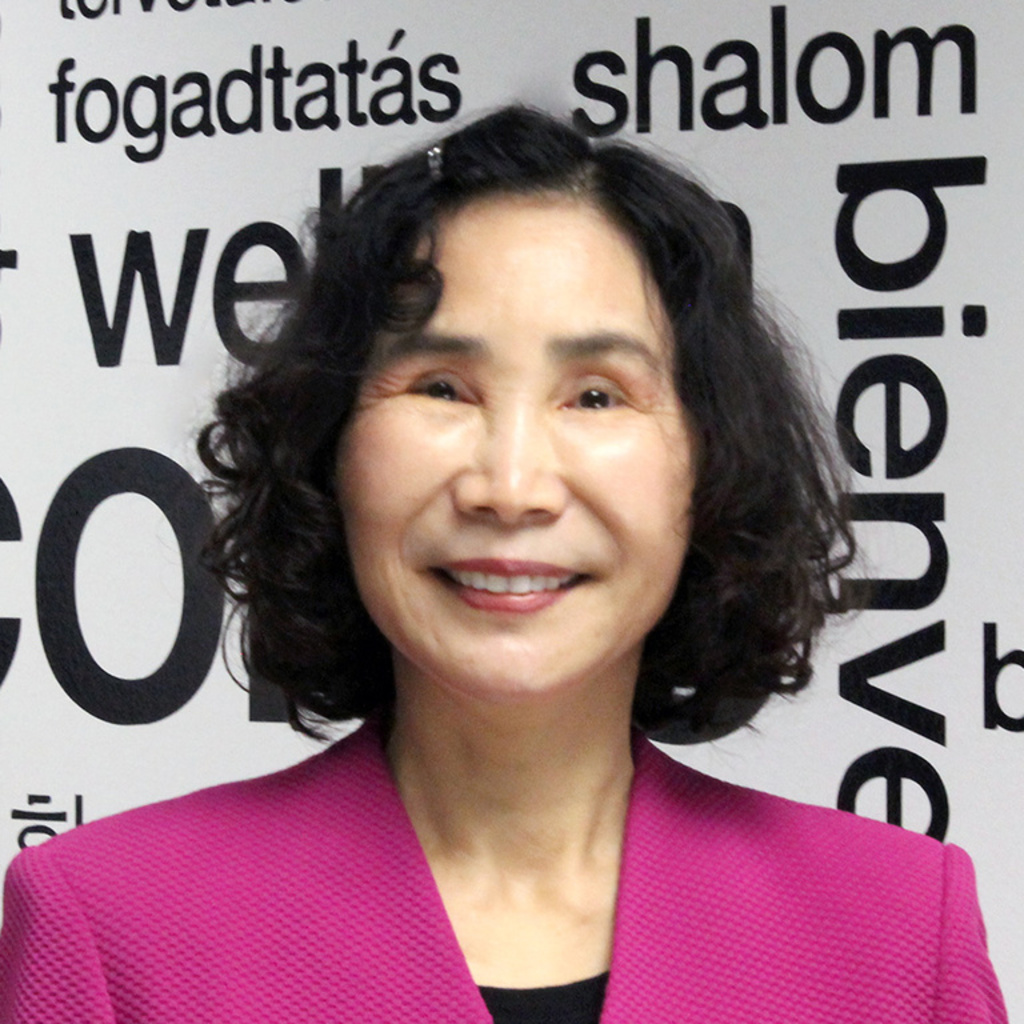
Helen Shen
Professor Shen’s main research areas are Chinese L2 literacy development focusing on orthographic knowledge development and cognitive process of Chinese characters, reading education in Chinese, and instructional theories in teaching Chinese as a second language. For the information of her research articles and books, please visit https://myweb.uiowa.edu/heshen.
Professor Shen directed a comprehensive Chinese reading website supported by a U.S. Department of Education grant. For online Chinese reading lessons, please visit https://chinesereadingworld.sites.uiowa.edu.
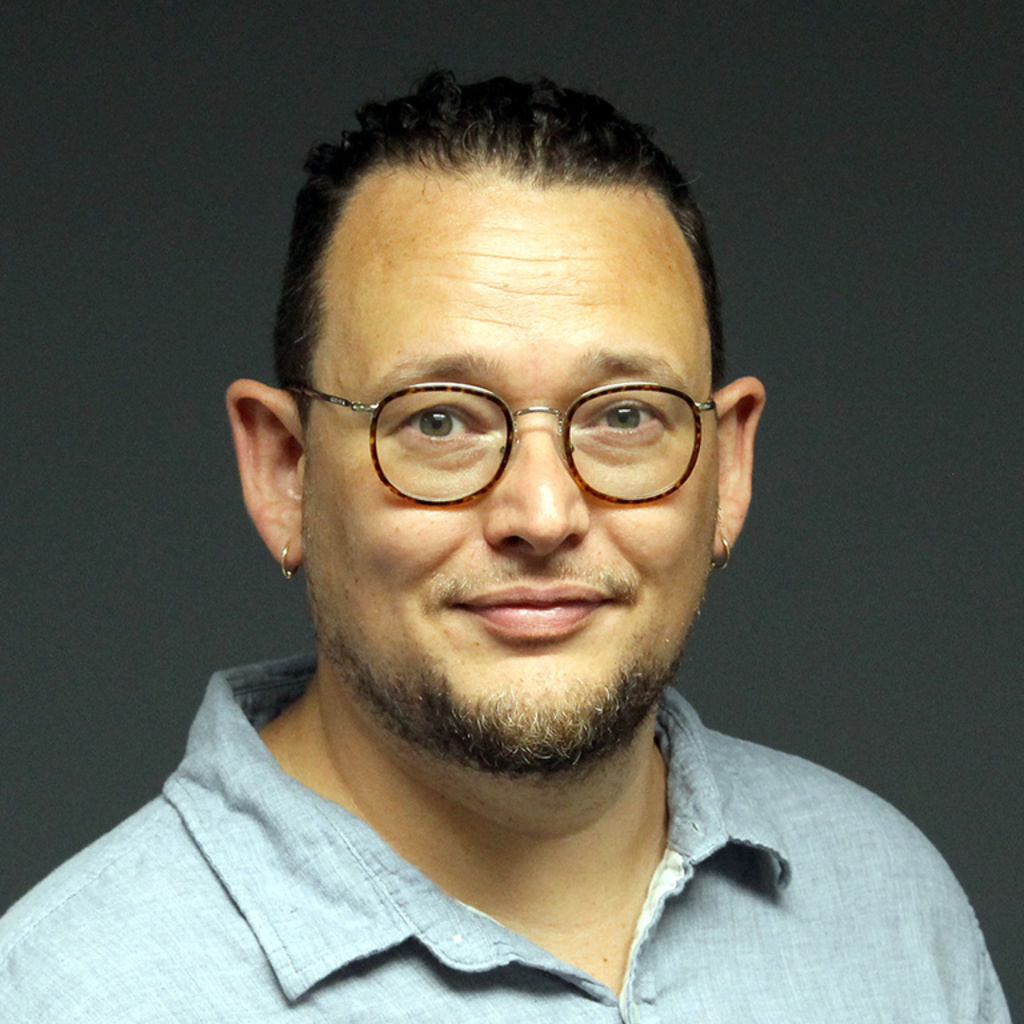
Jan Steyn
Jan is a translator and critic of literature written in Afrikaans, Dutch, English, and French. He holds a PhD in comparative literature from Cornell University. His academic work focuses on translation theory, critical contemporaneity, and world literature. He is the editor of Translation: Crafts, Contexts, Consequences (Cambridge University Press 2022). And he is currently working on a monograph entitled World Literature for the Times: How Translations and Adaptations Create Contemporaneity.
About Major Projects
Through the generous support of the Stanley-UI Foundation Support Organization, International Programs' Major Projects Award promotes important contributions to scholarly debates and exchanges on international topics, issues, discoveries, and arts.
International Programs' Major Projects encourage activities or endeavors on a broader scale. These may take the form of collaborations, symposia, conferences, lecture series, artistic exhibitions, and performance events.
All events are free and open to the public.
International Programs Monthly Newsletter
Stay current on events like this major project and others offered throughout the year.
Individuals with disabilities are encouraged to attend all University of Iowa sponsored events. If you are a person with a disability who requires a reasonable accommodation in order to participate in this program, please contact Daniel Vorwerk in advance by email at daniel-vorwerk@uiowa.edu or call 319-467-1619.